SUMMARY
This is AI generated summarization, which may have errors. For context, always refer to the full article.
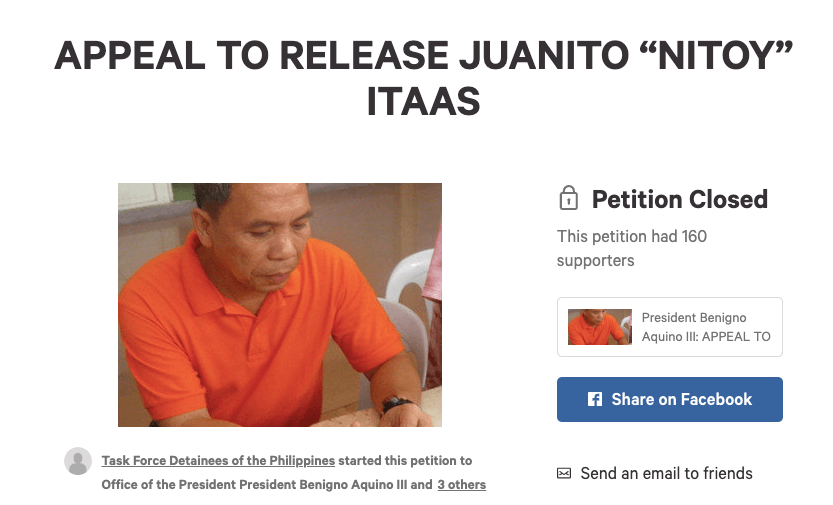
Juanito Itaas, 57 years old, is the longest-detained activist in the Philippines but he has just won a freedom case that would potentially finally grant him liberty after 32 years. And the lower court ruling that could give Itaas his freedom also struck a blow to President Rodrigo Duterte’s restrictive rule on prisoner time credits.
The Muntinlupa Regional Trial Court (RTC) Branch 204 ordered to release Itaas in a ruling on November 8 made public only recently, saying that Itaas “is entitled to be credited the equivalent days of the Good Conduct Time Allowances (GCTAs) earned by him.”
The court ruled Itaas has earned 29 years, five months and 23 days worth of GCTAs, or time deducted from sentence, and is deemed to have served his sentence for convictions for murder and attempted murder over the 1989 killing of American Colonel James Rowe, a high-ranking United States soldier based here back then.
In ordering Itaas’ release, Judge Gener Gito also “declared invalid” Section 2, Rule IV of the GCTA law’s amended Implementing Rules and Regulations (IRR) which excluded heinous crime convicts from GCTA.
It was an amendment by the Department of Justice (DOJ) as a response to public outrage when the late convicted murderer-rapist Antonio Sanchez was supposed to be freed in August 2019 as a beneficiary of the GCTA. The uproar that followed Sanchez’s foiled release also uncovered an allegedly corrupt system in the Bilbid jungle.
Itaas’ lawyer Ted Te of the Free Legal Assistance Group (FLAG) said Monday, December 20, that the lower court ruling would only apply to the activist, and not to everyone else whose GCTAs were delayed, or scrapped, because of the amendment.
It is the first known ruling that dents the DOJ’s IRR, a drastic move from the Duterte government that sent back already-freed convicts back to jail, resulting in deaths because of severe overcrowding in Bilibid.
The DOJ’s IRR also put on hold the releases of hundreds of prisoners, which is why the GCTA granted to US soldier Joseph Scott Pemberton last year was glaring compared to Filipino prisoners who had to stand by because authorities were waiting for a revised manual to suit the IRR. The eventual manual was cumbersome, but offered a narrow opening for heinous crime convicts to still avail of GCTA.
Te said Monday the “court’s ruling declaring as invalid the IRR provisions that made it more difficult for detainees to benefit from the GCTA is consistent with the Constitution and the law.”
“We hope that Mr. Itaas will be able to join his family for Christmas,” said Te.
On Monday, the Office of the Solicitor General (OSG) filed a motion for reconsideration, which could prolong the release of Itaas, or even scuttle it altogether should the lower court grant the motion.
Justice Secretary Menardo Guevarra deferred comment, saying he would still have to “discuss the matter with the OSG.”
The filing of OSG’s motion leads to a legal showdown involving an activist with the backdrop of a crackdown, and a highly-charged GCTA rule.
‘Ka Nitoy’
Itaas, known as Ka Nitoy, was arrested in 1989 when he was 25 years old when the New Peoples’ Army (NPA) took responsibility for Rowe’s killing. He was convicted in 1991 by a local court.
Itaas told the court he was tortured by his captors in Davao City in 1989, and was made to sign a testimony of admission under threat. He said he was “hit and mauled while a cellophane was placed on his head thus, causing him to loss consciousness,” according to Supreme Court records.
In 2000, the Supreme Court affirmed his conviction, sentencing him to reclusion perpetua for murder, and up to 9 years for attempted murder. The law only allows up to 40 years in prison no matter how many simultaneous sentences you are ordered to serve.
Later that year, Itaas was among political prisoners granted amnesty from crimes committed because of furthering their political beliefs. It was always unsettled whether Itaas’ murder convictions were covered, which is why over the years, there have been pleas to free Itaas on basis of amnesty.
GCTA was his last, best hope because the law could slash up to half of the sentence if the prisoner behaves well.
But since Duterte and DOJ amended the IRR to exclude heinous crimes, his GCTA grant was scuttled even though – as the court upheld – he had already collected credits worth 29 years, and he has been in jail for 32 years, for a 40-year sentence. He could have been freed much, much sooner based on strict math.
GCTA
The GCTA IRR was heavily disputed, mainly because of violation of equal protection. Equal protection was what got the Supreme Court in the first place to apply the law retroactively, so that all prisoners would benefit from an increased time credit.
Justifying the IRR, the government lawyers in the Itaas case said Section 1 of the GCTA law, or RA 10592, said heinous crime convicts were “excluded from the coverage of this act.” It prompted a legal debate on the wording of the law, and how it should be interpreted.
Judge Gito sided with FLAG in saying that because Section 1 is concerned with credit of preventive imprisonment (CPI), then the exclusion is from CPI only and not from GCTA. CPI is jailtime before conviction, which will be deducted from your sentence.
“Exceptions from benefits are limited to those prisoners undergoing preventive imprisonment,” said Judge Gito.
A similar case questioning the constitutionality of the GCTA IRR is still pending before the Supreme Court.
This is another win for activists as Itaas – if he’s finally freed – would be the 40th activist cleared or freed this year alone. Of those, 24 were cleared from cases where a search yielded guns, which activists claim is a scam of planting evidence, 15 were cleared from a long-running case of the NPA purge. – Rappler.com
Add a comment
How does this make you feel?
![[PODCAST] Law of Duterte Land: GCTA’s thorn – Do bad men deserve good things?](https://www.rappler.com/tachyon/2020/09/Law-of-DuterteLand.jpg?fit=449%2C449)
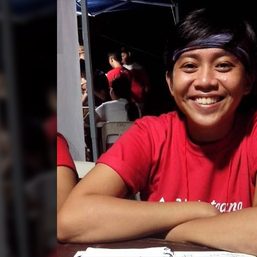

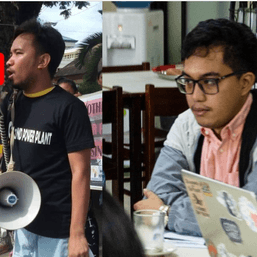
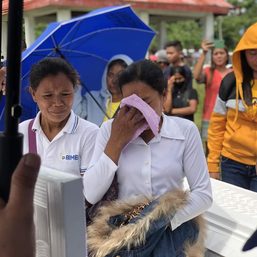
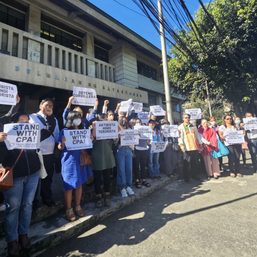


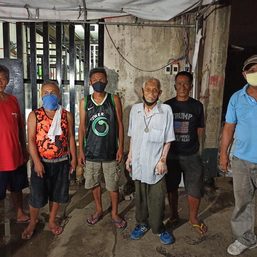


There are no comments yet. Add your comment to start the conversation.